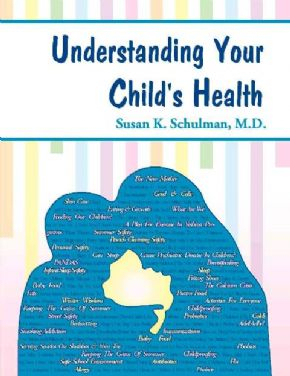Two books parents should know about: "Understanding Your Child's Health" by Susan K. Schulman
By Mayer Fertig
Issue of Oct. 2, 2009 / 14 Tishrei 5770
Many books guide parents through the medical pitfalls of childrearing. This is the first we’ve seen that does so through the prism of an Orthodox Jewish lifestyle, offering information geared to, say, Yom Tov overeating, the dangers of Pesach cleaning, or the relative (or utter) lack of exercise offered to students in most yeshivas.
Dr. Schulman is a pediatrician who has practiced in Borough Park for over 30 years, today treating the grandchildren of some of her original patients.
“Understanding Your Child’s Health” (Hamodia Treasures, 226 pages, $16.95) is well organized into sections including The First Two Years, Nutrition, Activity and Exercise, Safety, and Pediatric Problems and Solutions. The essays are drawn from columns she’s written in recent years in several frum publications, now available to a wider audience in book form.
Schulman doesn’t mince words about the importance of immunizations, which she gives to her own grandchildren.
“As convincing and emotional as they are,” she writes of claims that immunizations can cause autism, mercury poisoning or serious illness, “these claims are spurious and based on unfounded science. The tragic truth is that there are children in our own community suffering and dying from preventable diseases ... because of their parents’ misguided decisions not to vaccinate.”
The newest vaccines, Schulman says, “are the safest and most effective in medical history.”
Writing specifically to Yiddish-speaking communities, Schulman declares that only girls are truly bilingual, while boys are proficient in English as a second language, at best.
“This lack of fluency is very embarrassing to the boys,” she said, requiring young married men to leave to their wives all interaction with the secular world, such as the gas or phone company.
“If the Yiddish-speaking husband tries to interact with these people on the phone with his broken English,” she observes, “he is looked upon as less than intelligent.”
She explains the mechanics of language development and advises mothers in Yiddish-speaking homes to speak to their sons in English and require them to respond in kind, if not every day than at least one day a week.
Schulman advises that toilet training be done early; and notes that Orthodox Jews as an ethnic group have the highest number of pediatric burn unit admissions in the New York area; Schulman also declares that spending a lot on children’s shoes is not necessary for proper development. Proper fit is important but “discount or not, the children’s feet will do fine in any shoes that fit comfortably.”
The book includes fascinating information about Pediatric Autoimmune Neuro-psychiatric Disorders Associated with Strep (PANDAS), a recently labeled syndrome in which children display sudden, disturbing psychiatric symptoms, possibly as a result of a strep infection.
One important matter on which Schulman apparently declined to take a strong stand is sexual abuse of children. In an otherwise excellent chapter titled Ensuring Your Child’s Personal Safety, she writes that after reassuring the child “that you are not angry with him,” the parent should “make sure that this person will not abuse the child anymore. This may require dealing with the school, the neighbor or even close family members.”
Then, while Schulman notes that, “An abuser who is not stopped can abuse hundreds of children over a lifetime,” she inexplicably skips the step that is most likely to prevent that, namely calling the police. Instead she writes, “A knowledgeable Orthodox rabbi should be consulted for guidance” and seemingly ignores the high rate of recidivism among abusers by writing “there are special therapy groups for child personal abusers in our community.”
Forewarned about this bizarre and glaring omission, the book is otherwise excellent and is highly recommended — not only for new parents but even those who have already been around the block a few times.

 39.0°,
Fair
39.0°,
Fair 




